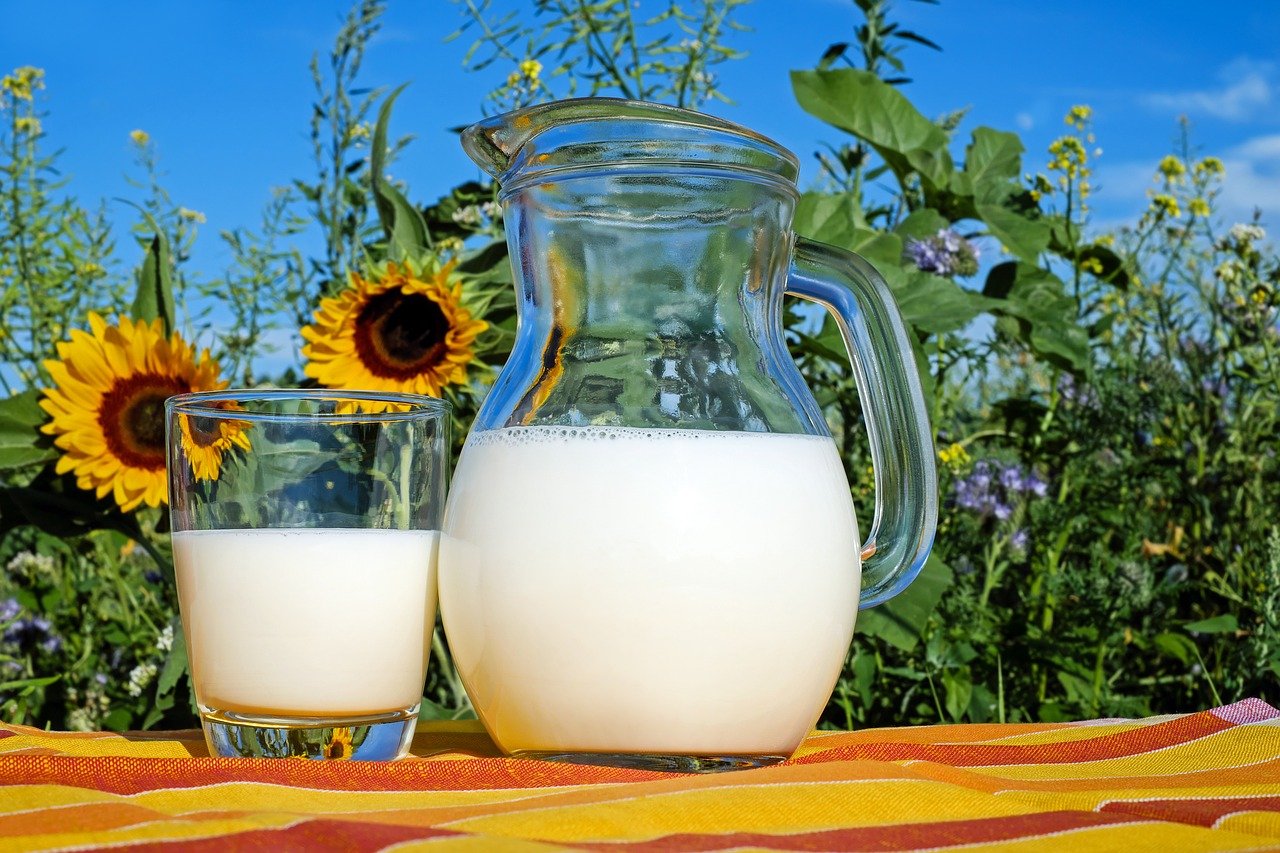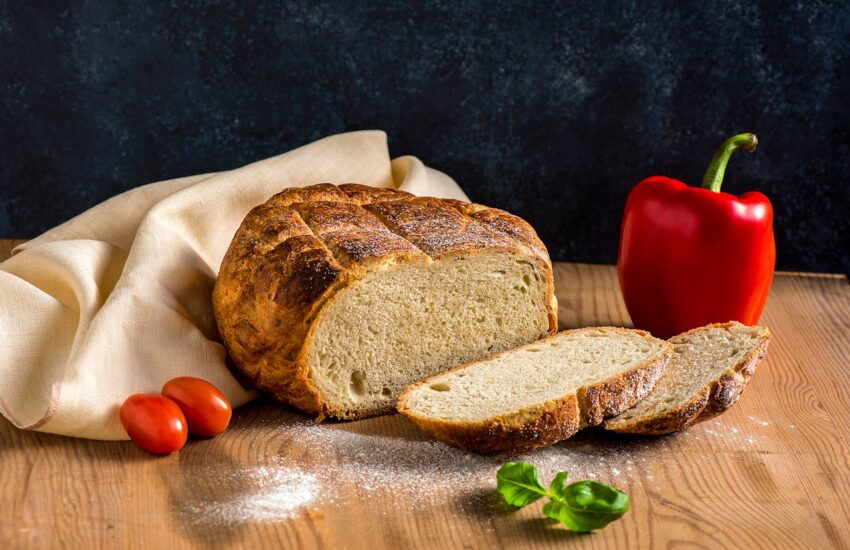Should You Eat Grass-Fed Dairy – Or Pass?
There are plenty of times where I tell a person they should give up dairy and I can see the light drain out of their eyes.
No dairy means no pizza, no ice cream, no cheese, no cheesecake, no cake, and a billion other things.
Dairy is everywhere in our common diets, and it’s also part of the reason so many Americans are tragically unhealthy.
So that’s why I decided to write this article.
Years ago I wrote an article where I showed how harmful dairy could be.
When I wrote that article almost 6 years ago I was convinced that the vast majority of dairy sold out there is terrible for you. And to this day, my opinion hasn’t changed.
However, over the course of those 6 years I’ve discovered something about dairy that has changed how I feel about this loved and demonized food.
While I’m not 100% a dairy endorser, I think there are some circumstances where dairy is acceptable, and you might even say, healthy.
As you can guess from the subject line of this article I’m talking about grass-fed dairy.
I’m going to delve into the subject of grass-fed dairy and explain how in some contexts, it’s not a food you should avoid.
This isn’t a unilateral recommendation for dairy. Plenty of people who read this shouldn’t eat dairy because their allergies to the proteins and fats in dairy won’t distinguish between conventional dairy and grass-fed dairy.
So, I want to make that known to people.
But, again, I should also make one more caveat. As a Christian, I believe that what God says about our ancient ancestors living in the fertile crescent of the Middle East, and his admonitions to eat milk and honey, likely means that dairy can’t be definitively bad for us.
So I’d like to give you a brief overview on why grass-fed dairy might actually be a health food that some of my patients and readers can enjoy without worry.
3 Good Reasons Grass-Fed Dairy Can Be Considered a Health Food
A common argument made by the paleo movement is that adults like you and I shouldn’t drink milk because milk is reserved for children, mainly infants.
The argument goes that since you’re an adult, you shouldn’t drink milk. You don’t drink human breast milk, and there’s a reason for that.
They argue that no other animal drinks milk into adulthood, and no other animal drinks milk from another animal either.
Well, this argument doesn’t really hold up when you consider that humans don’t do many things in line with the animal world. Like driving cars, and inventing computers.
And, could it also be argued our reliance on animal milk is actually what gave our brains the power to be as good as we are at inventing and surviving?
How exactly could that work?
Well, reason #1 grass-fed dairy is so good for us is the fat ratio.
1 – Grass-Fed Dairy Is a Superior Source Of Anti-Inflammatory Fat:
One of the reasons I’ve told people to steer clear (no pun intended) of conventional feedlot-raised beef has to do with the kind of fat it contains.
While we need some omega-6 fats in our diet, conventional beef is lopsided in its omega-6 to omega-3 ratios.
And the reason this is a problem is because Omega-6s are inflammatory and can cause serious health issues.
Conventional beef that are responsible for producing most of the dairy sold in stores have the same issue. Too much omega-6 fat and not enough omega-3 in your diet can cause developmental issues, lead to the formation of food allergies, and weaken the immune system.
Grass-fed dairy still gives you omega-6 fats, but it does it while providing much more omega-3 fatty acids.
In 2019 researchers conducted a study at Michigan State University and discovered that when cows ate a diet that was as close to natural as possible (that means wild-foraging and eating natural grasses and avoiding soy, corn, and the like) that their rations were close to 2:1 omega-6 to omega-3 on average.
That’s a serious improvement over corn-fed beef, which hovers around 15:1 omega-6 to omega-3 ratio.
I’ll touch on definitions around grass-fed in a bit, but the important thing to realize is that if you’re consuming dairy from a cow that is truly grass fed, your body is being filled with healthy fats it needs to maintain optimal function.
And that’s why it may be OK for you to enjoy dairy.
2- Grass-Fed Dairy Also Delivers More CLA:
Another fat that grass-fed dairy contains more of is CLA (conjugated linoleic acid)
CLA is believed to be one of the better fats for weight loss and blood sugar control.
And it just so happens that grass-fed milk contains as much as 18% more CLA per serving than conventional dairy.
So, you may be wondering if grass-fed dairy can actually help you lose weight.
Well, provided your intake isn’t going to send you into a caloric overload, the answer is yes.
Mike Hajoway reports on some of the proven science for such claims:
In another study, a double-blind, randomized, placebo-controlled study was published in the December 2000 issue of the Journal of Nutrition found that CLA reduces fat and preserves muscle tissue. According to the research project manager, an average reduction of six pounds of body fat was found in the group that took CLA, compared to a placebo group.
The study found that approximately 3.4 grams of CLA per day is the level needed to obtain the beneficial effects of CLA on body fat. Dr. Michael Pariza, who conducted research on CLA with the University of Wisconsin-Madison, reported in August 2000 to the American Chemical Society that “It doesn’t make a big fat cell get little. What it rather does is keep a little fat cell from getting big.”
CLA can positively impact blood sugar too.
Research as far back as 1998 shows that CLA can “normalize impaired glucose tolerance,” which helps to promote healthy insulin levels and healthy blood sugar.
Plus, there’s research to indicate CLA can promote better heart health.
In a study from Nutrition, researchers analyzed Costa Ricans and their CLA levels to determine the higher the CLA levels a person had the lower their risk of a heart attack.
In Costa Rica, almost all milk comes from pasture-based farms where grass-fed isn’t even a thing… because it’s the only thing.
They studied 4000 people and discovered that people who have the highest levels of CLA tended to have a 36 percent lower risk of heart attack when compared to people on the low-end of the CLA spectrum.
Surprisingly this even held true when they controlled for heart disease risk factors like high blood pressure and smoking.
3 – Better at Vitamin Delivery
I know we don’t tend to think of milk as a vitamin delivery system, and most of the milk that has vitamins in it has been fortified to give it that vitamin content.
But, grass-fed milk, coming from animals that eat a natural diet filled with nutrient rich food, tend to display a high vitamin content.
The Kerry Health Institute writes this about how beneficial grass-fed dairy is in terms of vitamin distribution.
“Another desirable health benefit observed in the Teagasc study, was an increase in certain vitamin levels. Milk derived from grazing-based systems had higher levels of vitamins B2, B7 and E. These vitamins are understood to have beneficial roles in the diet. Vitamin B2 and vitamin E act as powerful antioxidants, for example Both vitamin B2 and B7 are water soluble, and, thus are regularly diminished and need to be replenished in the diet.”
That kind of means that grass-fed dairy is like a multivitamin for you.
Remember, it’s always better to get nutrients like vitamins and/or minerals from food than it is a pill, so if you add grass-fed dairy into your diet it could greatly help your total nutrient intake.
Some Important Notes about Grass Fed Dairy
As I mentioned earlier in the article, there are some things to understand about grass-fed dairy.
1 important one is grass-fed is becoming an abused term.
There are companies who will claim their cows are grass-fed even though they eat a lot of corn and grain in their diet.
This is called grass-fed, corn-finished.
Most dairy farmers who grass feed don’t corn finish because the corn finishing is meant to help with beef flavor. But still, it’s a good thing to know.
Another thing worth mentioning is grass-fed dairy is known to taste better. So if you already like most dairy products, this could amp your desire to eat a lot.
Of course, I would caution, that even though grass-fed dairy could be better for you, it is a high calorie food, so if you are attempting to lose weight, then you should certainly go easy on your consumption.


